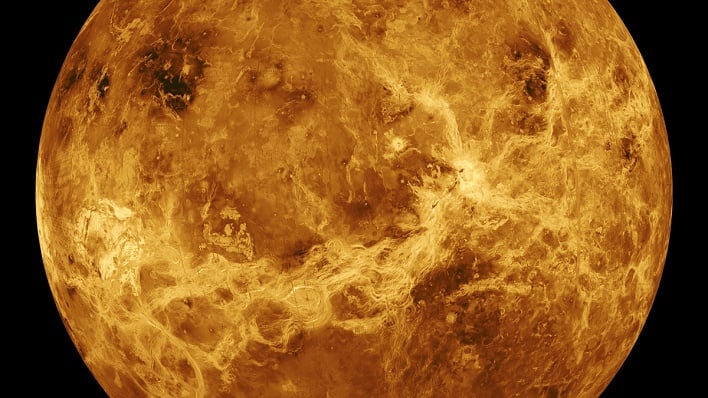Venus Is A Toxic Hot Mess But May Have Once Briefly Been An Oceanic Paradise
Modern-day Venus is a toxic mess of a planet. Its atmosphere is 90 times as thick as Earth's and has almost no water vapor. Temperatures on the surface of Venus can reach a scorching 864 degrees Fahrenheit (462 degrees Celsius). Some scientists believe that the planet could have been habitable at some point and time in its history, but explaining how that could be has been debated. A new study attempts to provide a possible answer to that question.
Alexandra O. Warren and Edwin S. Kite, both from the Department of Geophysical Sciences, University of Chicago, and co-authors of the study, remarked in the paper published in PNAS, "We find that only a narrow range of conditions enable Venus to have had a habitable era and still evolve to its modern state."

The two authors decided to create models based on Venus being habitable at one time to try and find a possible scenario to explain the loss of oxygen. They included placing water on the planet's surface, adding mechanisms that may have attributed to the loss of oxygen, and adjusting parameters such as the amount of water and the timeframe in which water may have been present. The results showed that only a small percentage of the 94,080 models run were successful.
The study found that the oxygen most likely succumbed to one of two endings. The first being it leaked out into space and the second was that it became isolated in oxidizable magma, such as basalt. Both scenarios would require that the oceans of water would have had to dry up no earlier than 3 billion years ago.
Once the scientists determined how active Venus' volcanoes were in the past, they concluded that if the planet was at one time a host to water, it wasn't much. They estimate Venus' oceans to have been no more than 300 meters (984 feet) deep, which is less than 10% of Earth's oceans.
Future missions to Venus could provide more data on the planet's surface composition, and finally provide a more certain answer to the question of whether or not Venus was ever habitable.
The NASA-funded study made use of University of Chicago Research Computing Center resources and can be found on PNAS.org.


